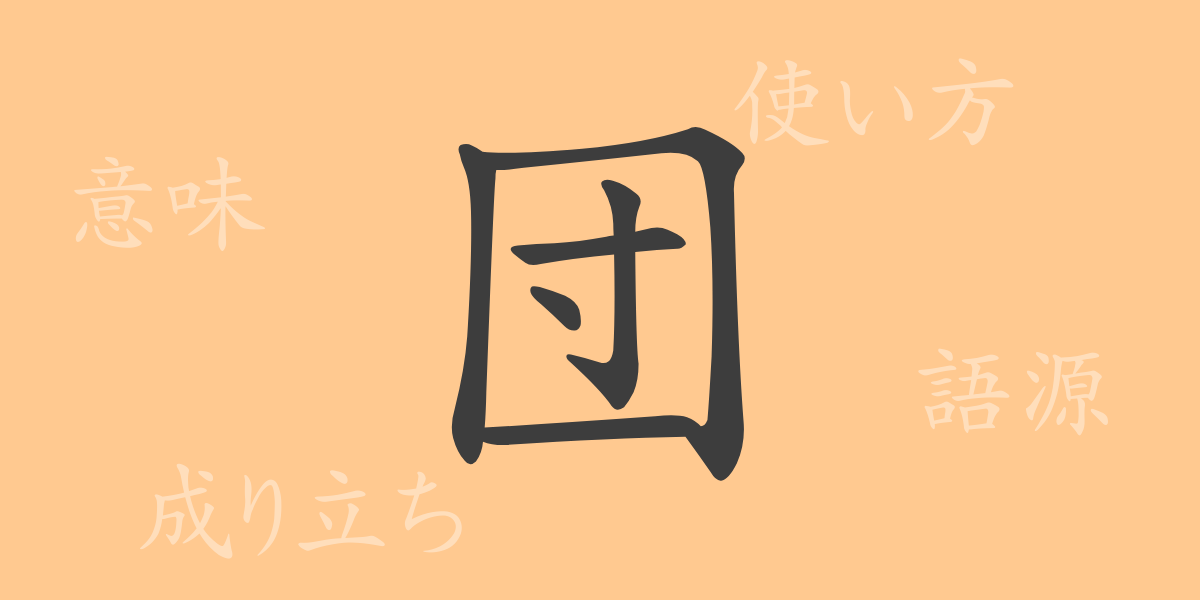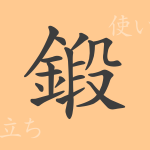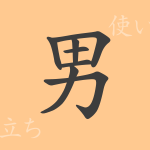Kanji transcends mere characters, embodying the deep meanings and histories behind culture and language. Today, we focus on the Japanese Jouyou kanji ‘団’ (だん) (dan), exploring its allure and usage. This article delves into the origins, meanings, and applications of ‘団’, elucidating the role it plays in Japanese language.
Origins of ‘団’ (だん) (dan)
The kanji ‘団’ evolved from ancient Chinese pictographs, originally depicting people gathered around a fire. This gathering imagery has led ‘団’ to meanings like “unite” and “group,” which continue to influence many words and expressions today.
Meaning and Usage of ‘団’ (だん) (dan)
‘団’ carries meanings such as “round,” “solidify,” and “gather.” It appears in various terms illustrating the unification of people or objects. For instance, ‘団体’ (だんたい) (dantai) refers to a group with common purposes or interests, and ‘団地’ (だんち) (danchi) denotes a residential area with densely packed homes.
Readings, Stroke Count, and Radicals of ‘団’ (だん) (dan)
Here are some key details about the kanji ‘団’:
- Readings: On’yomi ‘ダン’ (Dan), Kun’yomi include ‘まる.い’ (marui), ‘かた.まる’ (katamaru), ‘かた.まり’ (katamari), ‘かた.める’ (katameru)
- Stroke Count: ‘団’ consists of 6 strokes.
- Radical: The radical of this kanji is ‘囗’ (くにがまえ) (kunigamae).
Phrases and Proverbs Using ‘団’ (だん) (dan) and Their Meanings
‘団’ is part of many idioms and proverbs, each enriching the Japanese language with its unique implications:
- ‘団結’ (だんけつ) (danketsu) – Unity and cooperation among people.
- ‘団扇’ (うちわ) (uchiwa) – A handheld fan, a symbolic item for cooling during summer.
- ‘団子’ (だんご) (dango) – A traditional Japanese sweet made from rice or wheat flour, often symbolizing family or social gatherings.
- ‘手を団にする’ – Clenching one’s hands as a gesture of resolving to face difficulties.
Summary on ‘団’ (だん) (dan)
The kanji ‘団’, as its form and history suggest, represents the beautiful concept of people coming together and cooperating. This character encapsulates the significance of bonds in various contexts, from peaceful gatherings to strong unities. The use of ‘団’ in Japanese reflects its diversity and rich cultural backdrop, symbolizing how people connect through language.

























